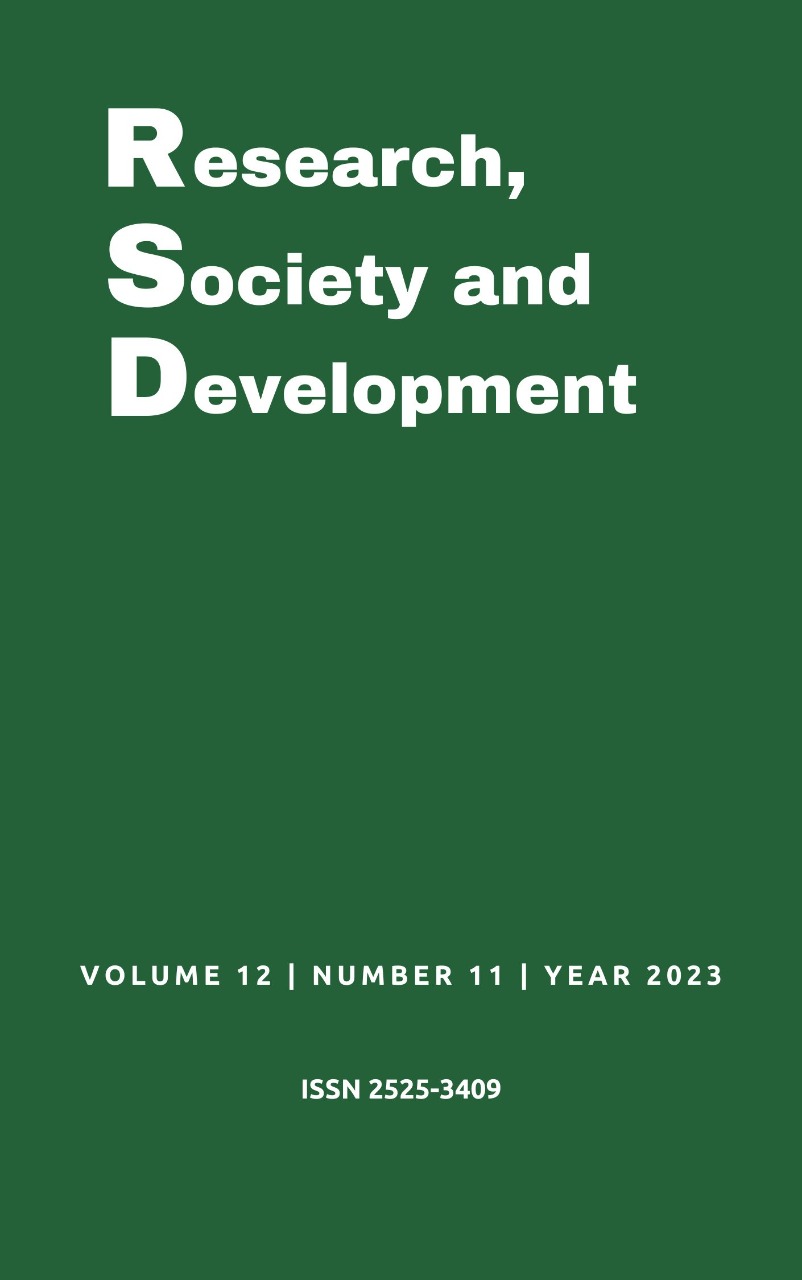Breast explant surgery: An integrative literature review
DOI:
https://doi.org/10.33448/rsd-v12i11.43560Keywords:
Breast explant, ASIA, Plastic surgery.Abstract
Breast explantation is the removal of the silicone prosthesis, mainly for health reasons, resulting from the body's immunological response mediated by cytokines and interleukins. After analyzing the studies, despite showing a need for more research to truly prove the association between silicone implants and the development of clinical conditions, it was found that the crucial reason for seeking the removal of silicone implants is the possible complications. related to prostheses, such as adjuvant-induced inflammatory syndrome (ASIA), silicone disease (BII), lymphomas and seromas. Therefore, with the upward movement of body self-acceptance and the alleviation of symptoms, such as fatigue, arthralgia, myalgia, neurasthenia, chest pain and photosensitivity in some patients undergoing breast explants, the demand for this procedure is increasingly frequent.
References
Alijotas-Reig, J., et al. (2017). Autoimune/inflammatory syndrome induced by adjuvants – ASIA – related to biomaterials: analysis of 45 cases and comprehensive review of the literature. Immunologic Research, 66(45), 120-140.
Avashia, Y. J., et al. (2020). Surgical Management of the Explant Patient: An Update on Options for Breast Contouring and Volume Restoration. Plastic and Reconstructive Surgery, 14(6), 978-985.
Batista B. N., et al. (2017). Relato de caso de linfoma anaplásico de células grandes associado ao implante mamário em paciente brasileira. Revista Brasileira de Cirurgia Plástica, 32(3), 445-449.
Boer, M., et al. (2017). Is explantation of silicone breast implants useful in patients with complaints? Immunologic Research, 65(1), 25-36.
Borba, V., et al. (2020). Classical Examples of the concept of the ASIA Syndrome. Journal Biomolecules, 10(14), 1-16.
Carvalho, R., et al. (2016). Association between Silicone Breast Implants and Autoimmune Diseases. Gazeta médica, 3(4), 192-200.
Colaris, M.J.L., et al. (2016). Two hundreds cases of ASIA syndrome following silicone implants: a comparative study of 30 years and a review of current literature. Journal of Immunology Research, 56 (8), 120-128.
Franco, T.., et al. (2013). Seroma tardio após implantes mamários de silicone: três formas diferentes de apresentação, evolução e conduta. Revista Brasileira de Cirurgia Plástica, 28 (2), 247-252.
Hillard, C., et al. (2017). Silicone breast implant rupture: a review. Gland Surgery, 6(2), 163-168.
Jara, L. J., et al. (2017). Severe manifestations of autoimmune syndrome induced by adjuvants (Shoenfeld's syndrome). Immunol Research, 65(11), 8-16.
Kaplan, J., et al. (2021). Breast implant illness: a topic in review. Gland Surgery, 10(1), 430-443.
Kappel, R. M., et al. (2020). Explantation of Silicone Breast Implants Ameliorates Gel Bleed Related Health Complaints in Women with Breast Implant Illness. Clinical Medical Reviews and Case Reports, 7 (3), 1-7.
Leberfinger, N.A., et al. (2017). Breast Implant–Associated Anaplastic Large Cell Lymphoma: A Systematic Review. JAMA Surgery, 152(12), 1161-1168.
Lee, M., et. al. (2020). Breast Implant Illness: A Biofilm Hypothesis. Plastic and Reconstructive Surgery - Global Open, 8 (4), 1-10.
Magnusson, M, R., et al. (2019). Breast Implant Illness: A Way Forward. Internacional Open Acess Journal of the American Society of Plastic Surgeons, 143 (3), 145-815.
Maijers, M.C., et al. (2013). Women with silicone breast implants and unexplained systemic symptoms: a descriptive cohort study. Netherlands Journal Of Medicine, 61(10), 534-540.
Martínez-Ramos, D., et al. (2018). Linfoma anaplásico de células grandes associado a implantes mamários: importancia para el cirujano. Cirugía y Cirujanos, 86 (5), 459-464.
Medina F. M. et al. (2016). breast implants, adverse events and rare complications: findings by mammography, US and MR imaging. Revista Colombiana de Radiologia, 4(3), 4434-4440.
Miranda, R. E. (2020). O explante em bloco de prótese mamária de silicone na qualidade de vida e evolução dos sintomas da síndrome ASIA. Revista Brasileira de Cirurgia Plástica, 55 (4), 427-431.
Palma, A. F. M. (2019). Linfoma anaplásico de grandes células associado a implantes mamários. 2019. 31 f. Dissertação (Mestrado) - Curso de Medicina, Universidade de Lisboa, Lisboa.
Real, D. S. S., et al. (2019). Linfoma anaplásico de grandes células relacionado ao implante mamário: revisão sistemática da literatura. Revista Brasileira de Cirurgia Plástica, 34(4), 531-538.
Rohrich, R. J., et al. (2019). Silicone Implant Illness: Science versus Myth? Plastic And Reconstructive Surgery, 144(11), 98-109.
Soares, G. S., et al. (2021). Relação da síndrome autoimune induzida por adjuvantes (ASIA) com o implante mamário. Revista Multidisciplinar em Saúde, 2 (34).
Sperotto, M. G., et al. (2021). Implantes mamários na syndrome autoimmune/inflamatória induzida por adjuvantes (ASIA): uma revisão de literatura. Revista Multidisciplinar em Saúde, 2 (8).
Tanna, N., et al. (2021). Not All Breast Explants Are Equal: Contemporany Strategies in Breast Explantation Surgery. Internacional Open Acess Journal of the American Society of Plastic Surgeons, 14(7), 808-818.
Wee, C. E., et al. (2020). Understanding Breast Implant-Illness, Before and After Explantation. A patient-Reported Outcomes Study. Annals of Plastic Surgery, 85(11), 82-86.
Widya, A., et al. (2020). Breast Implant Illness: Are Social Media and the Internet Worrying Patients Sick? Plastic Reconstructive Surgery, 145(13), 225-227.
Downloads
Published
Issue
Section
License
Copyright (c) 2023 Bruna Damas de Carvalho; Milena Bentivoglio Cunha Naves Vasconcelos; Lizandra Gomes de Oliveira; Luana Mesquita Brito; Mario El RIfai; Matheus Vaz Martins; Thaisa Medeiros; Maria Eduarda Lima Caltabiano; Érica Pereira Batista; VItoria Oliveira Meirelles

This work is licensed under a Creative Commons Attribution 4.0 International License.
Authors who publish with this journal agree to the following terms:
1) Authors retain copyright and grant the journal right of first publication with the work simultaneously licensed under a Creative Commons Attribution License that allows others to share the work with an acknowledgement of the work's authorship and initial publication in this journal.
2) Authors are able to enter into separate, additional contractual arrangements for the non-exclusive distribution of the journal's published version of the work (e.g., post it to an institutional repository or publish it in a book), with an acknowledgement of its initial publication in this journal.
3) Authors are permitted and encouraged to post their work online (e.g., in institutional repositories or on their website) prior to and during the submission process, as it can lead to productive exchanges, as well as earlier and greater citation of published work.


